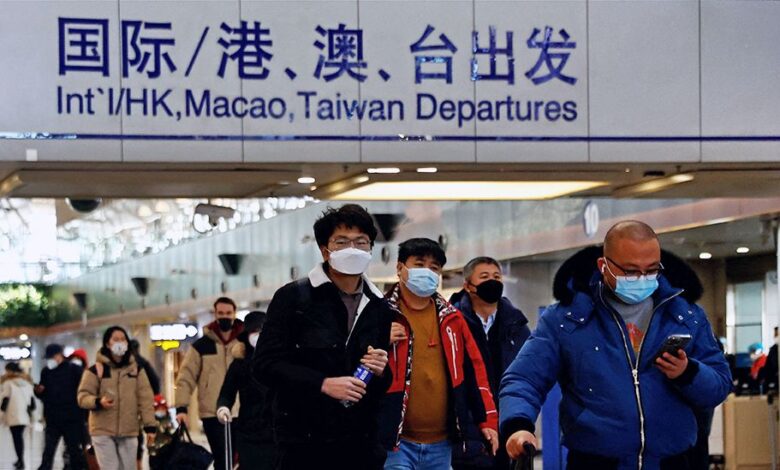
China will open its borders to travellers from the 8 of January 2023 marking the last major shift from the country’s zero-Covid policy.
After almost three years of closed borders, this will reopen the country to those with work and study visas, or seeking to visit family and Chinese citizens traveling overseas will become easier, said the immigration authority said on Tuesday.
China is the last major economy in the world to move to “living with Covid” after three years of lockdowns, closed borders and mandatory quarantine for Covid cases and contacts. The so-called zero-Covid approach battered the economy and made citizens weary of restrictions and repeated tests.
Resentment against the policy exploded into rare public protests against President Xi Jinping in November, which was followed by authorities dropping Covid rules just a few weeks later. Closed borders remain the last major restriction. Since March 2020, anyone entering China had to undergo mandatory quarantine at a state facility – for up to three weeks at a time. That was recently reduced to five days.
But on Monday the National Health Commission announced that Covid would be formally downgraded to a Class B infectious disease on 8 January. That meant quarantine would be axed – although incoming travellers will still need to take a PCR test. A cap on the daily number of flights allowed into China would also be scrapped.
Authorities said they would also “optimise” visa arrangements for foreigners wishing to come to China for work and study, as well as family visits and reunions. It’s unclear if that includes tourist visas, but officials said a pilot programme would begin for international cruise ships and Chinese citizens wishing to apply for passports to travel abroad will also be able to do so from 8 January, the immigration authority announced on Tuesday.
“I’m happy about it but also speechless. If we’re doing this [reopening] anyway – why did I have to suffer all the daily Covid tests and lockdowns this year?” said Rachel Liu, who lives in Shanghai.
She said she had endured three months of lockdown in April, but nearly everyone in her family had become infected with the virus in recent weeks. Her parents, grandparents and partner – living across three different cities in Xi’an, Shanghai and Hangzhou – had all come down with fever last week.
People in cities like Beijing and Shanghai, which experience chilly temperatures in the winter, say they’re running out of flu and cold medicine. It’s feared that hundreds of deaths may be going unreported as crematoriums are overwhelmed.
In the capital, Beijing, authorities say they are planning to distribute the Pfizer tablets, Paxlovid, in order to try and reduce the severity of infections and ease the pressure on hospitals. But health centres contacted by The Global Times on Monday said the drug had yet to be delivered.
On Monday, President Xi issued his first remarks on the changes, calling on officials to do what was “feasible” to save lives.



